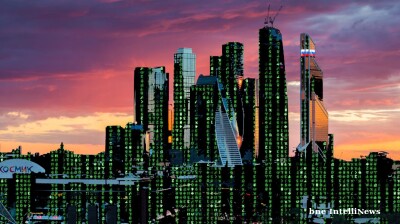Nebius Group N.V., an Amsterdam-headquartered company formed from the split of Russian tech giant Yandex's assets, has set an ambitious goal of becoming a major infrastructure provider in the rapidly growing AI sector.
"We are at the very beginning of the AI revolution," John Boynton, chairman of Nebius, said in an audio webcast. "Nobody can be sure which business models or underlying technologies will prevail, but we can be sure of one thing, the demand for AI infrastructure will be massive and sustained. This is the market space where Nebius will play."
"Our R&D team gained substantial experience in building large scale data centres, cloud computing architecture and other digital infrastructure," he went on to say. "Their technological expertise puts us in very good stead now as we set out to build one of the world's largest AI infrastructure companies."
"It's in the AI infrastructure space where we see a huge opportunity. Building effective, optimised and large-scale AI infrastructure is a challenge for the whole industry," added Arkady Volozh, CEO of Nebius Group N.V.. "It requires unique and specific expertise, which is what we have. It's not just about refitting old data centres and plugging in new chips. Everything has to be rebuilt from the ground up and specifically tailored from the outset to meet the needs of AI."
Boosting data centre capacity
Earlier this month, Nebius Group N.V. announced that it will triple the capacity of its data centre in Mäntsälä, Finland. The current expansion phase will enable Nebius to place up to 60,000 GPUs at the Mäntsälä location alone, with annual revenue potential of over $1bn at full capacity utilisation.
The expansion of the Finnish data centre – a state-of-the-art location with strong green credentials – is part of Nebius’s programme to invest more than 1bn in AI infrastructure in Europe by mid-2025. The programme is also expected to include investments in build-to-suit data centres at greenfield sites primarily in Europe, as well as colocations, such as the recently announced GPU cluster in Paris.
Nebius’ GPU cluster in Paris became one of the first in Europe to offer NVIDIA’s H200 Tensor Core GPUs. As an NVIDIA cloud and OEM partner, Nebius will also be among the first to provide customers with the cutting-edge Blackwell platform in 2025.
The company’s overall capacity expansion plans will enable it to support tens of thousands of GPUs, enhancing its AI cloud services globally. Built to meet the growing demands of the AI industry, Nebius draws on deep technical expertise in hardware, software, and machine learning. Its team of nearly 500 engineers brings decades of experience in building top-tier tech infrastructure, supported by an in-house LLM R&D team.
"Tripling capacity at our flagship site in Finland is an important step in our build-out of best-in-class AI infrastructure in Europe," Andrey Korolenko, head of infrastructure at Nebius, said in a statement published on Nebius Group's web site. "Our data centre at Mäntsälä is our ‘home base’ and showcases our ambition and the technical capabilities of the Nebius team, as well as our approach to adopting sustainability principles in our infrastructure."
According to Korolenko, the capacity that will be added during this expansion phase will enable Nebius Group to better serve growing demand from AI builders globally.
Nebius is already a leading provider of GPU capacity in Europe through the Mäntsälä data centre. The expansion in Finland will see the deployment of NVIDIA H200 Tensor Core GPUs, available to customers starting in November, complementing the already installed NVIDIA H100 Tensor Core GPUs that form the backbone of Nebius’s NVIDIA fleet. Additionally, Nebius will be one of the first in Europe to offer the energy-efficient NVIDIA Blackwell platform to customers in 2025.
The Mäntsälä data centre employs cutting-edge technology to minimise its environmental impact, reflecting Nebius' commitment to sustainability. This includes hardware optimised for intensive workloads, energy-efficient supercomputing, advanced cooling, and heat recovery systems. With a power usage effectiveness (PUE) as low as 1.1 under high IT loads, the centre outperforms the global average of 1.58. It also uses free cooling and a heat recovery system, which annually recovers 20,000 MWh of energy—enough to heat 2,500 Finnish homes. The data centre's expansion will further enhance the heat recovery programme's efficiency.
The Mäntsälä centre also hosts ISEG, one of the most powerful supercomputers globally in terms of performance and energy efficiency, ranking in the top 25 with 35.26 GFlops per watt-second. The innovative design enables operations at server temperatures of up to 40°C, yielding an additional 15% energy savings.
Nebius’s current investment programme will expand its total capacity to tens of thousands of NVIDIA GPUs, offering a highly differentiated, energy-efficient AI cloud solution to customers worldwide.
Clear slate
Nebius Group N.V. was formed after the Dutch parent company of Yandex divested all of its Russian and Russia-connected business, leaving the Amsterdam based tech group with a handful of AI related assets, including the core AI infrastructure business. The Russian assets were sold to a consortium of Russian investors for $5.4bn in a deal involving cash and shares and marking the largest corporate exit since Russia’s invasion of Ukraine, though sold at a discount.
As a result, Nebius Group no longer has any presence or operations in Russia. On Oct. 21, 2024, trading of Nebius Group's Class A ordinary shares resumed on Nasdaq. Trading of Yandex's shares was suspended shortly after Russia's invasion of Ukraine in February 2022. After a volatile start of trading, shares traded up and ended the day at $20 per share (up from the $18 start price).
In addition to AI-focused Nebius, the group runs three other divisions. Toloka is a data partner for all stages of AI development from training to evaluation. TripleTen is an edtech platform specialising in reskilling individuals for successful careers in tech and Avride focuses focuses on driverless cars and delivery robots. The group also owns a stake of around 28% in Clickhouse.
Looking into the future
According to Volozh, the split of Yandex's assets left Nebius Group with roughly $2bn in cash, which, along with the company's tech expertise and a strong engineering team are going to become the basis of the company's AI infrastructure ambitions.
"We believe that given the magnitude of required compute and the associated costs, the market will be dominated by big players," he explained. "These are obviously the hyperscalers, like Google, Amazon, Microsoft, large private clouds like meta, Apple, Tesla and just a few additional sizable specialised players."
"This is where we fit in," he said. "The hyperscalers and the large private clouds will likely consume most of their compute internally, leaving most of the independent market to a handful of specialized players like us with capacity of hundreds of 1000s of GPUs."
Currently, Nebius Group N.V. has its main headquarters and largest R&D presence in Amsterdam, where about 450 people work, while the company runs additional R&D hubs in other parts of Europe, as well as in Israel, and is expanding its presence in the US.
As Volozh summed things up in the webcast, referring to the past experience and track record of the team: “Let me be very clear - we have done this before, and we will do it again.”
Tech

Defence conglomerate Czechoslovak Group acquires Serbian drone tech company MUST Solutions
CSG has been on a shopping spree propelled by its boosted sales following the Russian full scale invasion of Ukraine in 2022 as well as armed conflicts in the Middle East and Africa.

Japan’s Nintendo predicts sales of 19mn Switch 2 units to March
The Switch 2 marks Nintendo’s most expensive hardware platform to date and represents the company’s principal long-term base for its extensive roster of first-party franchises.

Kyrgyzstan’s president addresses son’s involvement in creating digital bank with Binance founder ‘CZ’
Crypto kingpin Changpeng Zhao, two weeks ago pardoned by Donald Trump over money laundering, is adviser to country’s leader Japarov.

Russia blocking messaging apps again, sets up copycat Telegram app
Russia’s internet watchdog Roskomnadzor has been blamed for another round of internet outages in Russia, as the state sets up a Telegram messaging app clone as the Kremlin continues to take increasing control of RuNet.

_Cropped.jpg)


